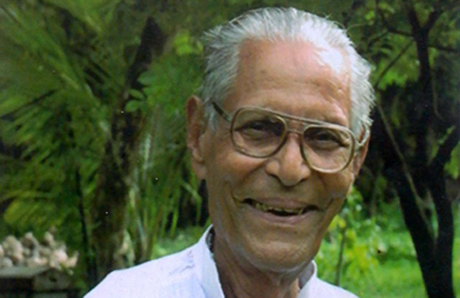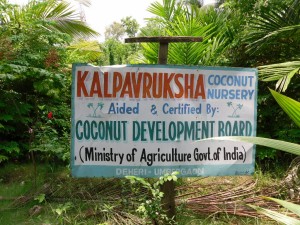Roj Mohor Mah Khordad, 1385 Yz.
Few Indians, and almost no Parsis seem to have noticed the passing away of one of India’s greatest sons, Bhaskar Save, at the age of 93 on 24th October 2015.
Bhaskar Save was a giant amongst men, a man who had the audacity and bravery to stand up against the fads of the day, who resolutely believed in the ancient systems and practices of India and who fought against corporate cronyism and the machinations of pharma and agro multinationals till his last breath.
Born is a poor family in village Dehri, very near to the Parsi’s favourite village of Davier, Bhaskar Save grew up in an agricultural family with a bit of schooling.
In his early years, Bhaskar Save was a distributor for chemical fertilizers and himself used them prodigiously on his farm with good results. However, he realized soon thereafter that the land was becoming listless and more and more chemical inputs were needed to get the same output. Naturally curious with an investigative bent of mind, Bhaskar ji made a deep study of the cultural and agricultural practices of the Adivasi tribals who lived closed by and was fascinated by their belief systems that trees were the residences of various Gods and hence could never be cut.
Keeping aside one plot on his farm for agricultural experiments, Bhaskar Save slowly developed his own unique system of cropping patterns, using indigenous ideas and technology and with no use of chemical pesticides or fertilizers. He very cleverly propagated his system as ‘do nothing’ farming, with some of the highest outputs for fruits, vegetables, paddy and other crops.
As his fame spread, more and more farmers started coming to his farm. Unlike others, Bhaskar ji was always very open and free with his knowledge, never holding anything back. But he was very bitter about the direction in which Indian agriculture was proceeding. Some years ago he wrote what has now become a very famous letter to agricultural scientist and supposed ‘Father’ of the Green Revolution, M S Swaminathan, drawing his attention to how modern farming was denuding India’s land and making us slaves to foreign technology and methods. All Bhaskar ji got was a four line reply …
I became interested in farming and living off our land sometime in 2003, while I was still working with a multinational. A visit to some organic farms in Gujarat further increased my interest. However, after taking over as the Panthaky, there was no time for these activities. Sometime in 2007, I came across the book “The Way to Health, Wealth & Happiness” written by Ashok Sanghavi, a rich industrialist who was swindled into purchasing a barren plot of 23 acres not far from Bhaskar Save’s farm. Over time and with his interaction, a deeply sceptical Ashok bhai was surprised and then astonished when the same land which had lain fallow for 30 years began to produce prodigious amounts of fruits, vegetables and paddy under the loving care and direction of Bhaskar Save and his sons.
This life-changing incident forced Ashok bhai to bring out a book explaining what had happened for the benefit of other Indians. After reading this book over and over, I decided that I must meet Bhaskar ji. So one day in 2008, I and my friend Porus set out in Gujarat Express to Umergaon road and from there took a rickshaw, asking the driver to take us to the Kalpavruksh farm of Bhaskar Save. The rickshaw driver, seeing that we were Parsis thought we had come to drink toddy and have fun and so promptly took us to the Davier Agiary. We had to slowly explain to him that no we wanted to meet Bhaskar Save. He gave us a strange look, as though we were already drunk or demented and then took us to the farm.
As we walked in unannounced, someone came to greet us and soon we were in the presence of a very old and frail person – this was Bhaskar Save. Its difficult to find out who was more surprised – we meeting him or he seeing two Parsis on the farm. He kept on repeating ‘Parsi bhau alele ahe, kashala ale tumhi log?’ ‘Parsi bhau to chaan farmer hote, baga na Dahanu, kase tyani banavlele, pan aataa kay jhaala, sagle Parsi log Mumbai madhe kaam karte…’ ‘Jamin sodli tyani…’
Anyway, he took us around the farm, talking in Marathi and Hindi and a bit of English, offering us the sweetest bananas we had ever eaten, talking non-stop about his farming philosophy and how he did nothing and yet earned in lakhs… we two just kept looking at each other and nodding. That was the first and last time I met Bhaskar ji, but my friend Porus was more determined and later on began making weekly trips to the farm, taking part in many courses and developed a close relationship with Bhaskar ji and his sons. He was there last week, when the old man was on his last stage, and came back and called me to say that it looked as though it may be all over soon. And he was right.
But why should we be bothered about Bhaskar Save? What has he got to do with the Zoroastrian religion and Khshnoom?
There is a deep connection.
Bhaskar Save’s philosophy is very much Zoroastrian. His deep understanding of traditional Indian values, his respect for all creations of God, be they animal, vegetable or mineral, his deep and abiding faith that land is the gift of God to man and hence must be respected, treated with love and care, and that there is enough for everyone’s need but never enough for everyone’s greed, are all core Zoroastrian principles.
Ustad Saheb Behramshah N. Shroff explained the principle of fragmentation which exists in Nature. He revealed that not only was there a counterpart of our soul in the other sex, but also fragments of our soul in the animal, vegetable and mineral kingdoms, and these fragments have to be assimilated into ourselves by leading a righteous life. Salvation would take place only when all these fragments were assimilated and the male and female counterpart united in the spiritual ceremony called Khaetwodath, mentioned in our Jasa me avangahe Mazda prayer.
But how do we know that the parts we are attracting into our body are fragments of our own soul and not someone else’s? What is the procedure to ensure that we only take what is ours and not another’s? This is where Ustad Saheb emphasized the importance of leading a Tarikat based life – wearing the Sudreh Kusti, covering the head and feet at all times, speaking truth at all costs, the use of Taro, the importance of doing the Kusti at every change in Gah, the necessity of reciting certain ‘Farajyat’ or mandatory prayers through the five parts of the day, etc.
When a Zoroastrian follows these principles, his soul, which vibrates at a specific frequency which is unique to him, begins amplifying the vibration across a wider area. These amplified vibrations attract the fragments in the animal, vegetable and mineral kingdom, which resonate at the same frequency. Over a period of time, the fragments trapped in the other kingdoms are assimilated into man’s body.
A key element in this process of gathering our fragments is the food we eat and its provenance. Yet how many of us can say with certainty as to where our dinner came from? The majority of what comes onto our plate is of unknown origin and treated with an unholy cocktail of chemicals and pesticides. Up to the last century, Zoroastrians were closely linked to the land and every family was provided their food from their own, or the neighbour’s farms. Mobed Sahebs were given payment in kind (Akhyana) of these crops and fruits, and it is from such Zoroastrian wheat that Daran were made and ceremonies performed over Parsi -harvested fruits. The community’s prosperity and well-being were intrinsically linked to our deep love for land and farming. The migration of Parsis to Mumbai and urbanisation changed all that.
Our fruits come from abroad – despite India being a land of rich orchards. Our pulses are imported, because hoarders manipulate stocks and governments are too scared or otherwise to crackdown on them. Indians take pride in saying ‘this is imported ha!’ and that is why leave aside spiritual progress, even normal progress seems to be eluding us. We can send a mission to Mars, but not grow enough onions to feed our population!
In these times of showing off, rank vulgarity of new-found money, and the rise of the middle class, it is a tragedy that Bhaskar Save’s passing has been almost ignored by our media, who are too busy with covering the shenanigans of our politicians, which cricketer romanced which actress, and the antics of 14 people locked up in a house, bringing out the worst of human character. Unfortunately, for them the passing of a man called the Gandhi of Indian farming is not relevant, and nor is it to the majority of Indians.
But the times are changing, and they are changing for the worse. The next great wars are not going to be fought on religion or territory – they will be fought on water, land and natural resources. The time draws near when the backbone of modern civilization – electricity will soon become unworkable. How will we function then? How will we exist? In those calamitous times, people will turn to the memory of Bhaskar Save and other like him who struggled to make India and Indians realize the value of their land (not for selling to real estate goons) as a means of living their livelihood.
In such times, Parsis will HAVE to turn to the message of the Abed Sahebs of Demavand brought to us by our Master, Ustad Saheb Behramshah, that the only way to survive any calamity is for Parsis to prove their Parsism through the practice of their religious disciplines and Tarikats. We will have to give up our over-modernization, over-westernization and irreligious lifestyle.
May the Religious Fathers of Bhaskar Save quickly escort his noble soul to its appointed destination, and may he look over all of India with his benign and enlightened gaze. One of the greatest sons of India is gone, let us hope that his work and ideals are carried forward by those to whom he has entrusted his legacy.
Ervad Marzban J. Hathiram
ShareOCT


